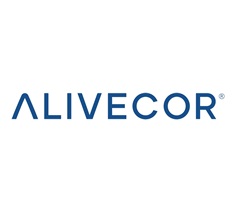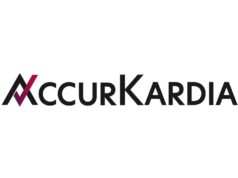 AliveCor has announced new data published in the journal Computing in Cardiology (CINC) demonstrating that its Kardia 12L electrocardiogram (ECG) system—the “world’s first” artificial intelligence (AI)-powered, handheld 12-lead ECG system with a unique single-cable design—performs comparably to a standard, hospital-grade ECG for detecting common morphological cardiac abnormalities, including heart attack.
AliveCor has announced new data published in the journal Computing in Cardiology (CINC) demonstrating that its Kardia 12L electrocardiogram (ECG) system—the “world’s first” artificial intelligence (AI)-powered, handheld 12-lead ECG system with a unique single-cable design—performs comparably to a standard, hospital-grade ECG for detecting common morphological cardiac abnormalities, including heart attack.
“AliveCor’s Kardia 12L ECG system was born from our vision to leverage AI and revolutionise traditional ECG screening,” said David Albert, founder and chief medical officer of AliveCor. “This landmark study provides compelling clinical evidence that our AI, paired with our device’s reduced lead set, delivers results on par with the gold-standard ECGs that are typically only available in hospital settings. These data reinforce our belief that more convenient, AI-powered technology like ours can democratise access to potentially life-saving heart data.”
The pocket-sized Kardia 12L device and its AI (KAI 12L) were US Food and Drug Administration (FDA)-cleared in June 2024, and applicable Category III Current Procedural Terminology (CPT) codes went into effect on 1 January 2025.
AliveCor claims that, using only a single cable with five electrodes to acquire eight high-quality diagnostic bandwidth leads, the Kardia 12L ECG system combines the power of KAI 12L’s AI technology and the Kardia 12L to enable faster, easier detection of 35 cardiac determinations, including heart attacks. The company also notes in a recent press release that this unique, simplified design makes it possible for more healthcare providers in a wider range of settings—including primary care offices, urgent care clinics, employer clinics, and rural locations—to access and integrate 12-lead ECG data into cardiac care.
In the present study, performance was assessed using the area under the curve (AUC) and precision-recall (AUCPR) metrics—standard metrics for detecting clinical cardiac abnormalities. The results indicated that the Kardia 12L ECG system, with its reduced lead set, performed comparably to the standard 12-lead ECG in detecting major morphology-related abnormalities, including right and left bundle branch blocks (right, AUCPR=0.96; left, AUCPR=0.93), ischaemia (AUC >0.97), and old and acute myocardial infarction (old, AUCPR=0.77; acute, AUCPR=0.45). Overall, the results indicate the Kardia 12L ECG system’s ability to maintain robust diagnostic accuracy for most major morphology classes, the release adds.
“The study surpassed our expectations, showing that the Kardia 12L system’s AI performs comparably to a hospital-grade ECG,” said Joel Xue (Emory University, Atlanta, USA), lead study author and research fellow at AliveCor. “ECGs are crucial for cardiac care but they remain cumbersome and not always accessible for patients and healthcare providers. Here, we’ve shown that the Kardia 12L system can help overcome these challenges, achieving high clinical standards while simplifying screening with a reduced lead set and far improved portability.”
In addition to their recent publication in CINC, these data were also presented at the 2024 international CINC conference (8–11 September, Karlsruhe, Germany).









